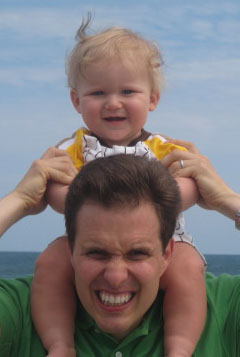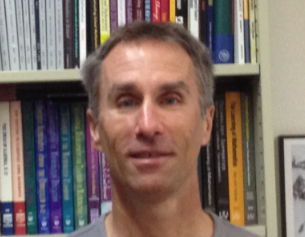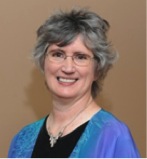The SIGMAA on Research in Undergraduate Mathematics Education
presents its Sixteenth Annual
Conference on Research in
Undergraduate Mathematics Education
February 21-23, 2013 | Denver, CO
The SIGMAA on Research in Undergraduate Mathematics Education
presents its Sixteenth Annual
Conference on Research in
Undergraduate Mathematics Education
February 21-23, 2013 | Denver, CO
Plenary Speakers
 Dr. Koeno Gravemeijer
Dr. Koeno Gravemeijer
Professor of Science and Technology Education
Eindhoven School of Education
Eindhoven University of Technology
Title: How to support students in constructing more formal mathematics
Abstract: Formal mathematical knowledge is hard to transmit to students. For it typically concerns knowledge on a higher level of understanding than the students possess. Instead of trying to transmit mathematical knowledge, we may aim at helping students to construct new mathematical knowledge by building on what they already know. This presents mathematics educators with the difficult task of building on the informal knowledge of the students while working towards the conventional formal mathematics one is aiming for. I will discuss the theory of realistic mathematics education (RME) that offers guidelines on how to reconcile informal, experientially real starting points with conventional, abstract, mathematical endpoints. Key here are processes of generalizing and formalizing. There are, however, various pitfalls that threaten the realization of such processes in regular classrooms.
 Dr. Keith Weber
Dr. Keith Weber
Associate Professor of Education
Graduate School of Education
Rutgers University
Title: Benefits and limitations of complimenting qualitative research with quantitative studies: Lessons learned from five studies on proof reading
Abstract: Most mathematics educators agree that research in our discipline is most effective when it combines theoretical, qualitative, and quantitative approaches. Yet the research presented at the annual RUME conferences is dominated by qualitative studies, with research reports on quantitative studies being relatively rare. Until recently, this trend was present in my research projects as well, which nearly exclusively employed qualitative studies. Over the last few years, I have begun complimenting this qualitative work with quantitative studies. The purpose of this presentation is to describe what I have learned through this process in the context of five quantitative studies on the reading of mathematical proof. The findings represent my views of how quantitative studies can compliment qualitative research, including how such studies can be conducted and the benefits and limitations in engaging in this type of research. I conclude that quantitative research is a useful but underused methodology in the RUME community.
 Dr. Eric Knuth
Dr. Eric Knuth
Professor of Education
School of Education
University of Wisconsin, Madison
Title: The Role and Use of Examples in Learning to Prove
Abstract: Proof is central to mathematical practice, yet a perennial concern in mathematics education is that students of all ages struggle to understand the nature of evidence and justification in mathematics. Mathematics education scholars have suggested that overreliance on examples to justify the truth of statements is an underlying reason for students’ difficulties learning to prove. As such, example-based reasoning has typically been viewed as a stumbling block to overcome. My colleagues and I, however, view example-based reasoning as an important object of study and posit that examples play both a foundational and essential role in the development, exploration, and understanding of conjectures, as well as in subsequent attempts to develop proofs of those conjectures. In this talk, I will discuss research related to the role and use of examples in learning to prove as well as implications for teaching mathematics at both the secondary and tertiary levels.
 Dr. Loretta Jones
Dr. Loretta Jones
Professor of Chemistry
College of Natural Sciences
University of Northern Colorado
Title: How visualization techniques shape the landscape of mathematics and science education research
Abstract: Dynamic visualizations of scientific and mathematical processes can be powerful learning tools. However, their use has not always enhanced learning and, in fact, has sometimes been found to mislead learners. Collaborations among the research communities of cognitive science, education, mathematics, and physical and life sciences are helping science and mathematics education researchers to study the instructional uses of visualization techniques. These collaborations reveal how students perceive and interpret various kinds of visualizations and animations and show how to develop design principles for creating and using effective instructional visualizations. This presentation will examine research paradigms developed for investigating these areas.
Bio:
Loretta Jones is Emeritus Professor of Chemistry at the University of Northern Colorado. She earned a Ph.D. in physical chemistry as well as a D.A. in the teaching of chemistry from the University of Illinois at Chicago. Her research has focused on helping students to understand the molecular basis of chemistry through visualization. In 2001 she chaired the Gordon Research Conference on Visualization in Science and Education. In 2006 she chaired the Chemical Education Division of the American Chemical Society (ACS). She is a Fellow of the American Association for the Advancement of Science and the coauthor of award-winning multimedia courseware. In 2011 she received the ACS Award for Research in the Teaching and Learning of Chemistry.
